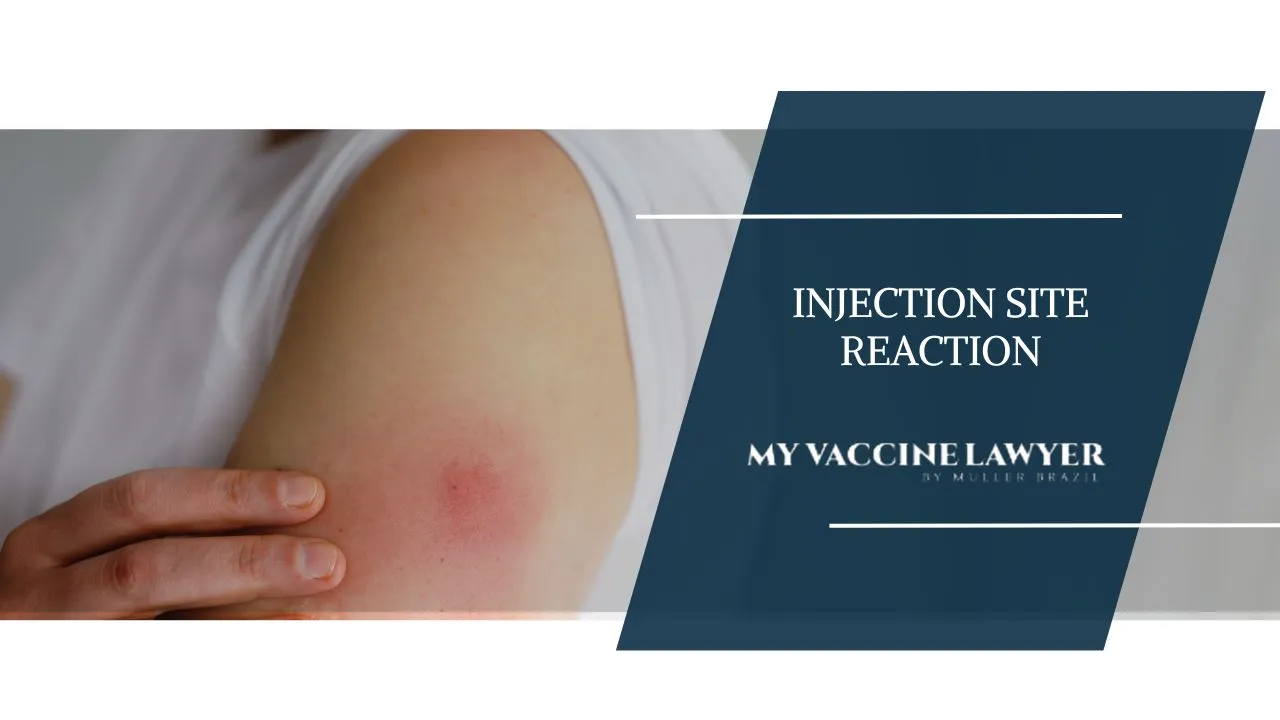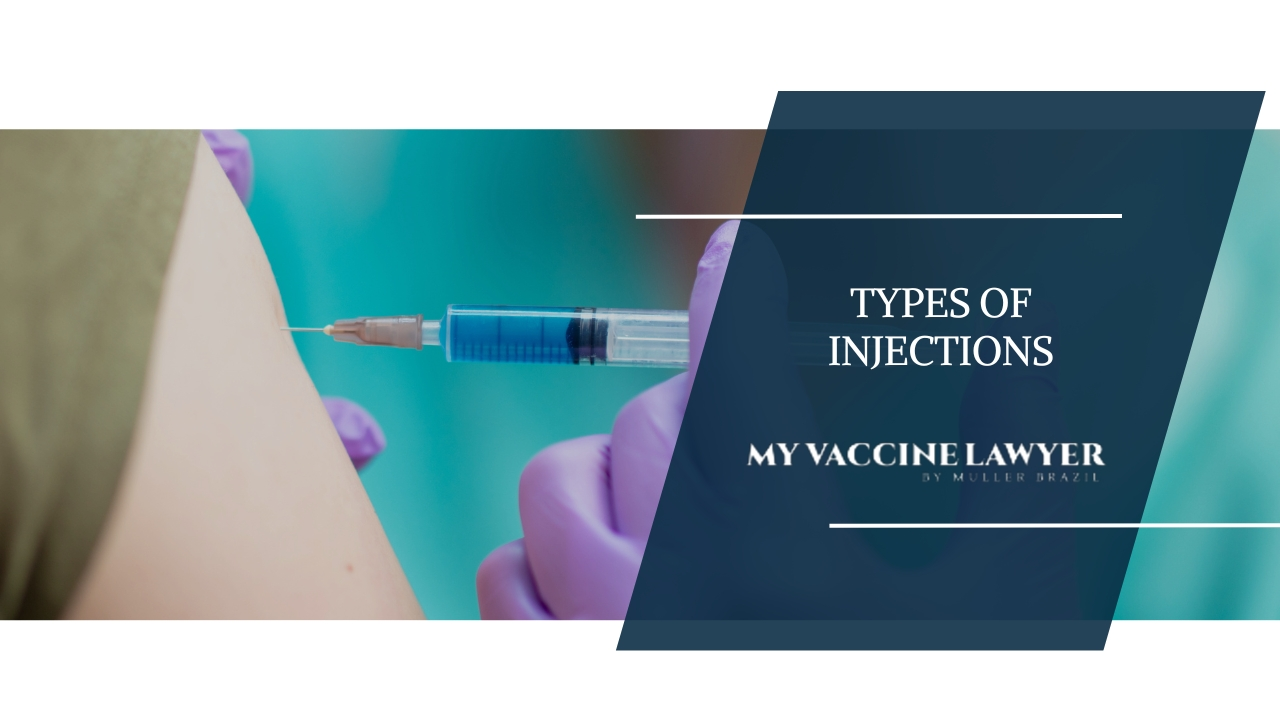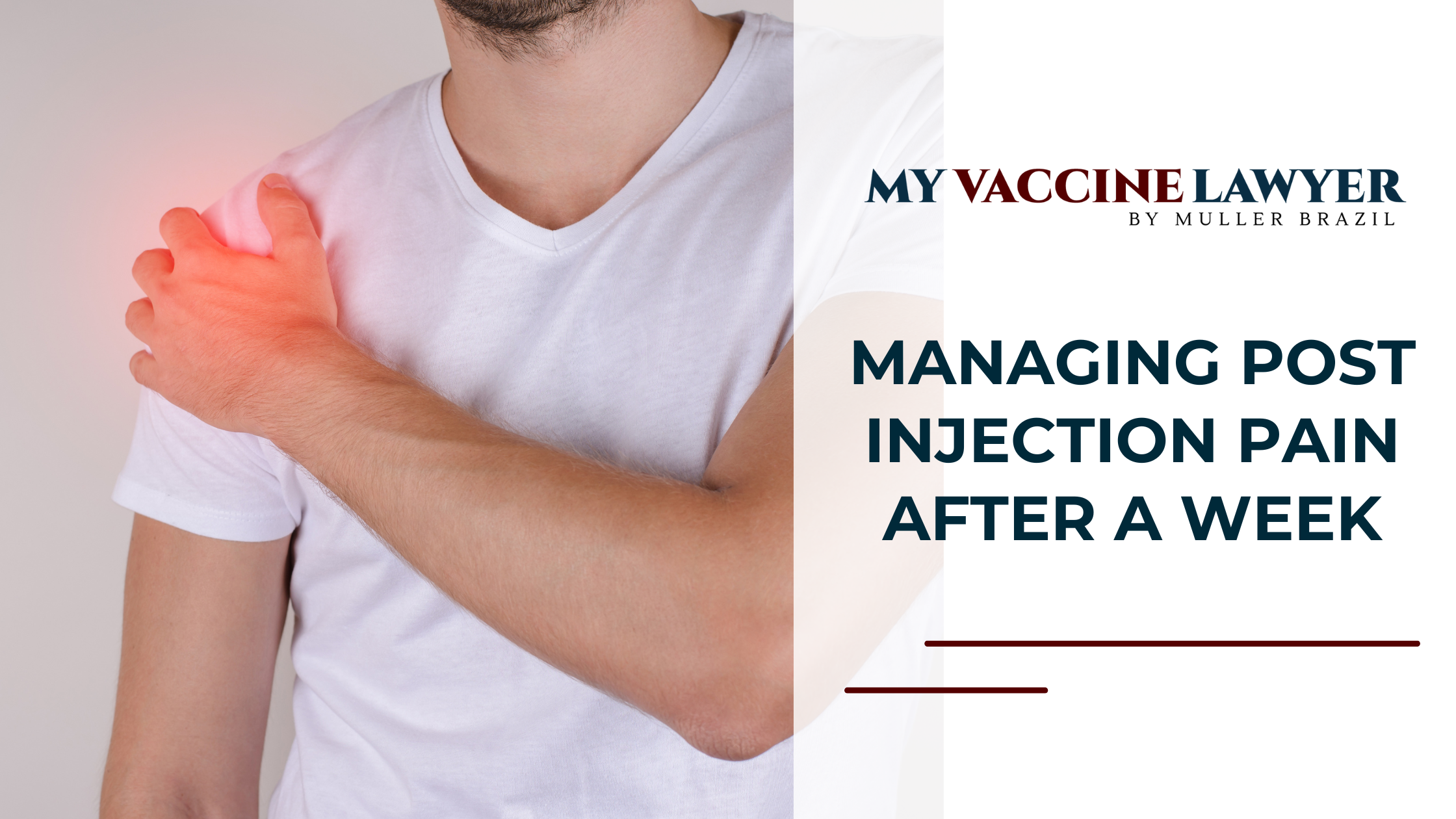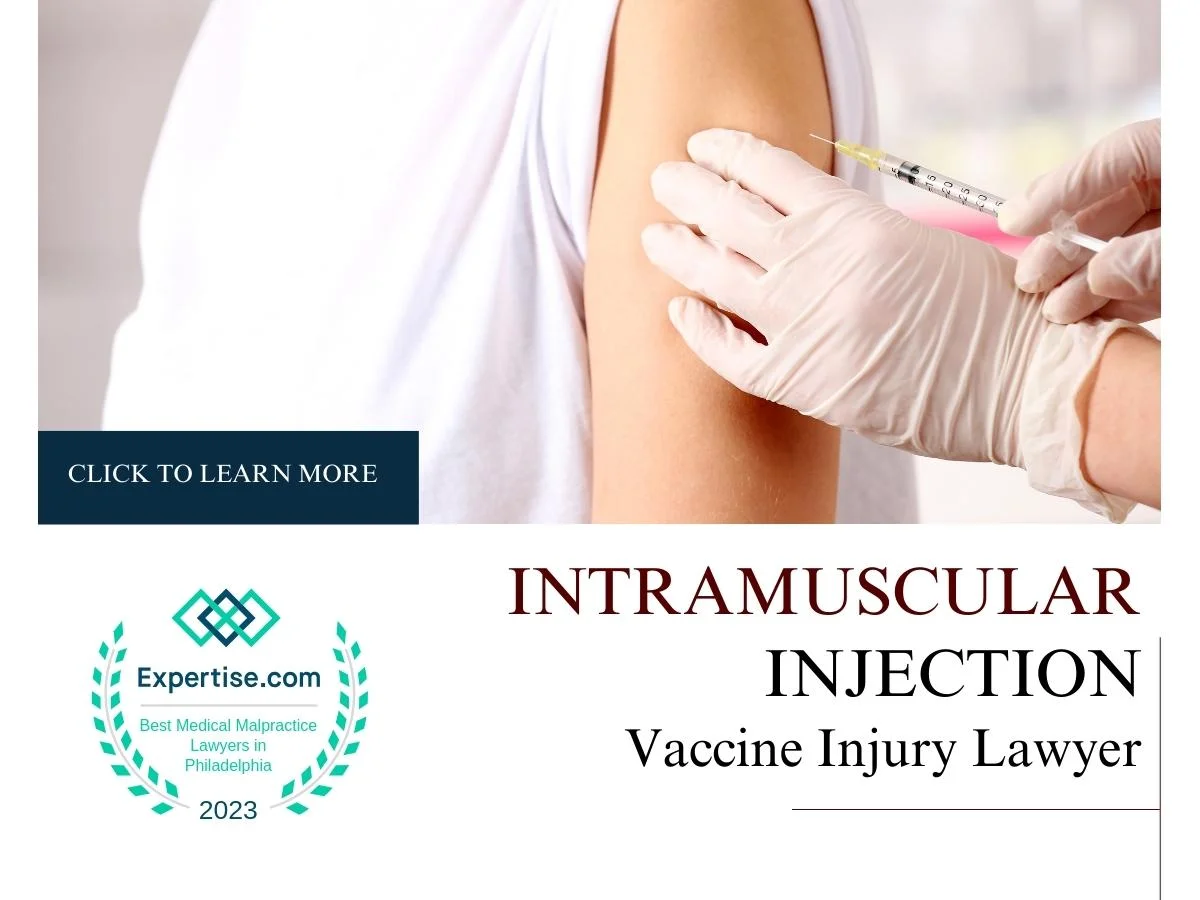Managing Vaccine Injection Site Reactions: Symptoms & Treatment
In this blog post, we will dive into the various types of vaccine injection site reactions, their symptoms, treatment and how to prevent and manage...
6 min read
Vaccine Injury Law Resources / Injection Site / The Risks of An Incorrect Intramuscular Injection
 Paul Brazil
:
Dec 2, 2022 3:21:47 PM
Paul Brazil
:
Dec 2, 2022 3:21:47 PM
Incorrect intramuscular injections can cause serious and sometimes permanent injuries—including nerve damage, muscle atrophy, chronic pain, and loss of mobility. While intramuscular (IM) injections are widely used and generally safe when performed properly, even a small error in technique, needle placement, or injection site selection can lead to significant medical complications.
When administered correctly, intramuscular injections deliver medication deep into muscle tissue, allowing for fast and effective absorption into the bloodstream. However, improper administration can damage nerves, injure muscle tissue, introduce infection, or result in the medication being delivered to the wrong anatomical structure. In severe cases, patients may experience long-term disability, reduced range of motion, or ongoing neurological symptoms.
Understanding the risks associated with incorrect intramuscular injections is critical for both healthcare providers and patients. Injuries such as sciatic nerve damage, shoulder injury related to vaccine administration (SIRVA), and localized tissue necrosis are often preventable—yet they continue to occur due to poor technique, inadequate training, or improper site selection.
An intramuscular injection (IM injection) is a medical technique used to deliver medication directly into muscle tissue, where it can be absorbed quickly into the bloodstream. This method is commonly used for vaccines, antibiotics, hormone therapies, and other medications that require rapid or sustained absorption and are not suitable for oral delivery.
IM injections involve passing a needle through the skin and subcutaneous fat layer to reach the underlying muscle. Proper technique—including correct landmarking, needle length selection, and injection angle—is essential to avoid complications such as nerve injury, muscle damage, or improper medication delivery.
By choosing the appropriate injection site and following established clinical guidelines, healthcare providers can reduce the risk of injury and ensure safe, effective medication administration. When these standards are not followed, however, the consequences can be serious—and in some cases, life-altering.
When an intramuscular injection is administered incorrectly, it can lead to serious complications affecting muscle tissue, nerves, and blood vessels. Some of the most common risks include:
Take Control of Your Injury Today
Selecting the correct intramuscular injection site is important in preventing serious complications such as nerve damage, tissue damage, and injection site infections. The appropriate site depends on factors like age, muscle mass, and the type of medication administered. The most commonly used intramuscular injection sites include:
Avoiding incorrect injections requires a combination of proper training, site selection, and adherence to medical guidelines. Healthcare providers play an important role in ensuring safe medication administration by implementing the following best practices:
When an intramuscular injection is administered incorrectly, it can cause immediate or delayed complications. Some of the most common signs that an injection may have been misplaced or performed incorrectly include:
The sciatic nerve is the largest nerve in the body, running from the lower back down through the legs. When an intramuscular injection is administered incorrectly in the buttock muscle, it can result in sciatic nerve injury, leading to severe and sometimes permanent complications.
Incorrect placement of an intramuscular injection in the gluteus medius muscle increases the risk of sciatic nerve injury. To minimize this risk, healthcare providers must inject into the upper outer quadrant of the buttock muscle, avoiding the nerve’s pathway.
If sciatic nerve damage occurs, medical attention is necessary to assess the severity of the injury and determine appropriate treatment options. In some cases, physical therapy, pain management, or even surgical intervention may be required to address long-term complications.
If you suspect that an intramuscular injection was administered incorrectly, taking prompt action can help minimize complications and prevent long-term damage. Here’s what to do:
Monitor symptoms closely – Pay attention to any signs of severe pain, swelling, numbness, or weakness at the injection site or in the surrounding area.
Seek medical attention – If symptoms persist or worsen, a healthcare professional can assess potential nerve damage, tissue damage, or blood vessel injury.
Report the incident – Inform the healthcare provider who administered the injection to make sure it is documented. This can help prevent future occurrences and may be important for legal or medical follow-ups.
Follow-up with specialists – If sciatic nerve injury or muscle damage is suspected, a neurologist or physical therapist may be needed for further evaluation and treatment.
Avoid repeated injections in the same location – Repeated injections in an area that has already been affected can worsen scar tissue formation and delay healing.
When an intramuscular injection is administered incorrectly, the damage may not always be immediate. Some complications develop over time, leading to long-term pain, mobility issues, and functional impairment.
Shoulder Injury Related to Vaccine Administration (SIRVA) occurs when a vaccine injection is given too high or too deep in the deltoid muscle (upper arm), causing nerve damage, inflammation, or joint injury. Unlike typical injection site soreness, SIRVA can lead to long-term pain and restricted mobility.
Because SIRVA results from incorrect injection technique, it is entirely preventable. Healthcare providers must guarantee proper injection site selection and needle placement to avoid causing tissue damage or penetrating too deep into surrounding muscle tissue.
An incorrectly administered intramuscular injection can lead to severe pain, nerve damage, and long-term health complications. Whether it’s sciatic nerve injury, SIRVA, chronic pain, or reduced mobility, these injuries can significantly impact daily life. In some cases, they may even require medical treatment, physical therapy, or ongoing pain management.
If you have suffered serious complications due to a misplaced intramuscular injection, you may have legal options. My Vaccine Lawyer specializes in cases involving vaccine-related injuries and medical negligence, helping victims recover compensation for pain, medical expenses, and lost quality of life.
Paul Brazil is a native of Dunmore, Pennsylvania and a graduate of Dunmore High School. For his undergraduate education, he attended Bloomsburg University where he majored in political science. He then went on to earn his JD from Widener University School of Law. Following graduation from law school, Mr. Brazil worked at a large Philadelphia civil defense firm where he litigated workers’ compensation claims and Heart and Lung Act cases. In 2012, he joined with his coworker Max Muller to form Muller Brazil.

In this blog post, we will dive into the various types of vaccine injection site reactions, their symptoms, treatment and how to prevent and manage...

The proper administration of injections is critical in the healthcare field, and it’s beneficial to be aware of all their different types with...

Injections are a routine part of medical care, used for vaccinations, medications, and other treatments. For most people, side effects are limited to...
